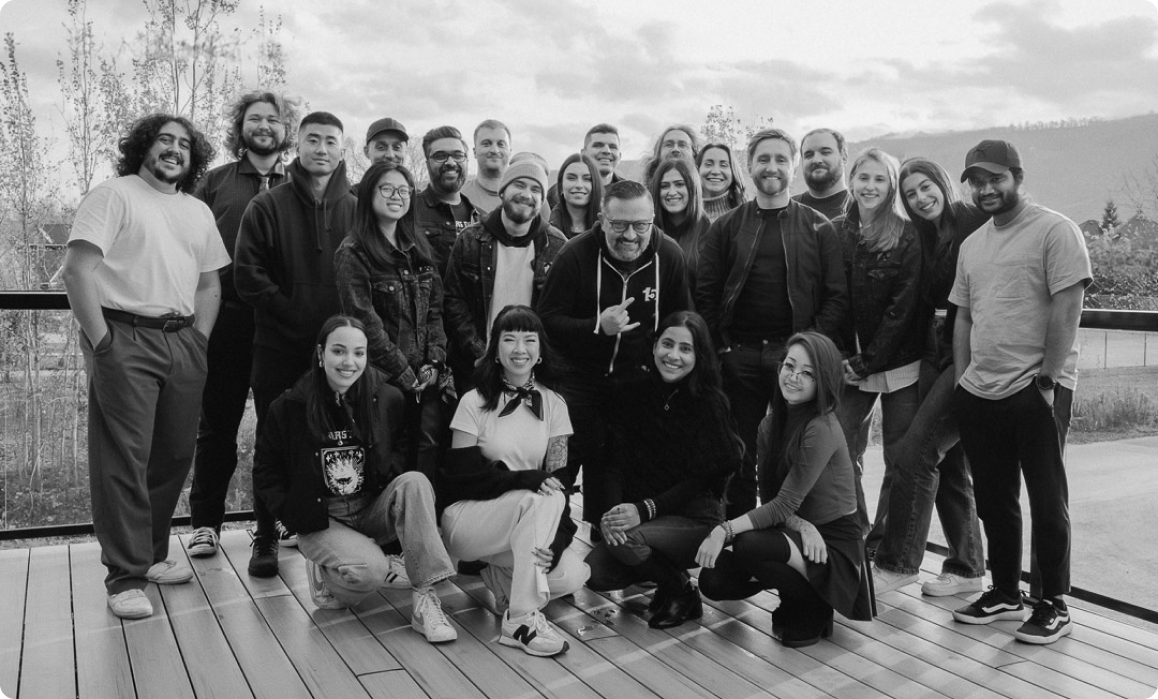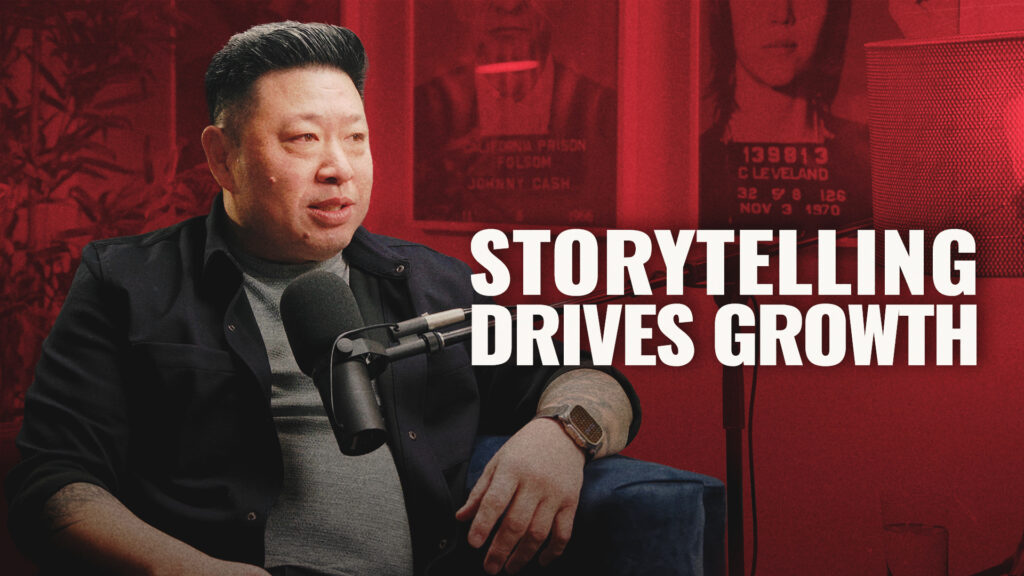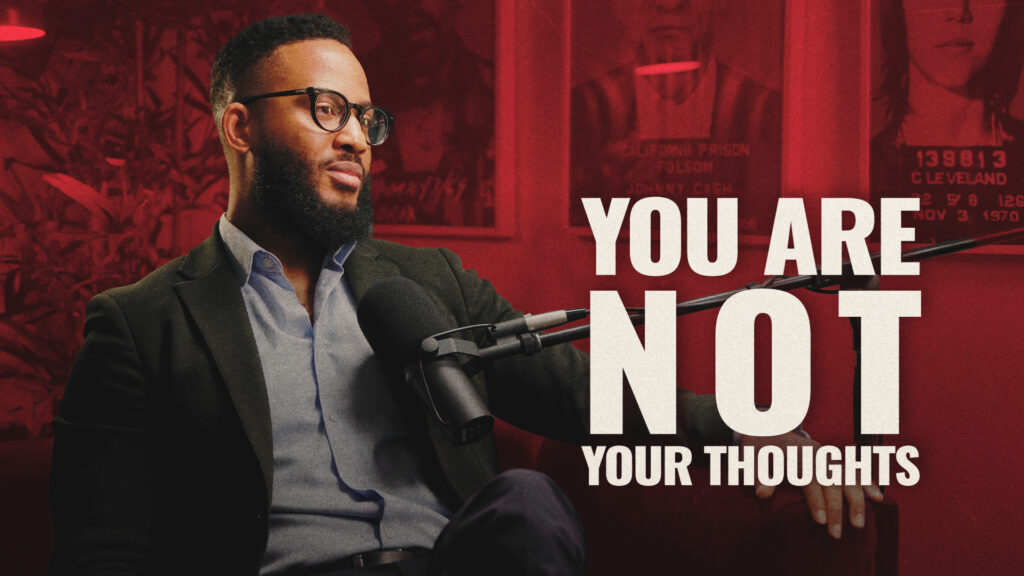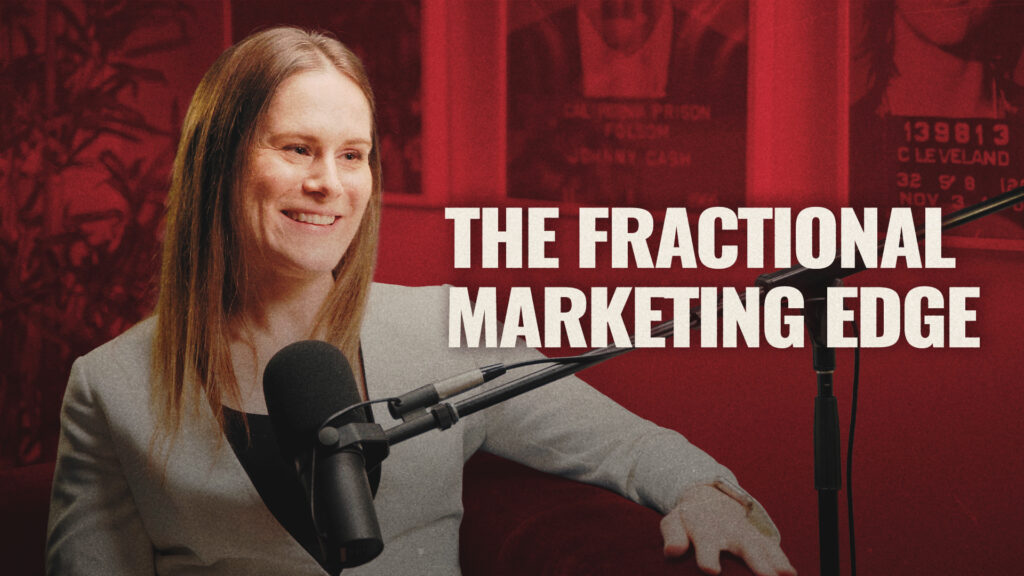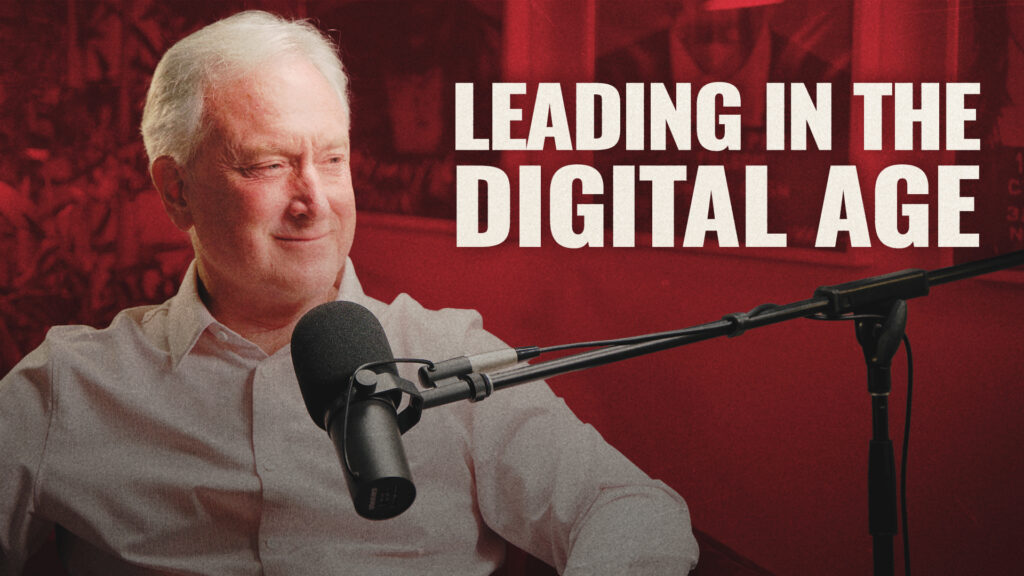The Rise of AI and What It Means for You
Podcast Episode 14
In this episode of Brews & Buzzwords, we explore the rise of AI and its impact on various industries, particularly marketing. NVISION’s own Director of Digital Marketing, Sylvia Wong and Marketing Strategist, Bowie Fan dive into conversational AI tools like ChatGPT, and the potential they have to revolutionize the way businesses operate internally, as well as communicate with their customers.
The Transcript
00:00:08:05 – 00:00:38:20
Sylvia Wong
Welcome to Brews and Buzzwords. Today we are talking about a massive topic, AI, which is artificial intelligence. I am joined today by a Bowie Fan and we have a little furry friend Pippin down here who might be making some noise as well. He’s just anxiously chewing away. So, Bowie, this huge topic of AI, let’s talk about what it is and how it’s kind of infiltrated our industry.
00:00:39:15 – 00:00:43:14
Sylvia Wong
What are your thoughts on the tools that you’ve used and the background you have in it?
00:00:44:09 – 00:01:10:16
Bowie Fan
Yeah, I think these tools were eminent and we saw them coming from miles away. It was really just a matter of time until we started seeing them to the level that they are. The most common one right now is ChatGPT open by open AI, and it’s currently the most forward and technically open-source model available for this writing copy AI situation.
00:01:11:06 – 00:01:23:04
Bowie Fan
Specifically, I found that like anything else that comes with AI, it’s not much of anything new, but it’s how easy the tool is to use.
00:01:23:19 – 00:01:34:06
Sylvia Wong
Right. I think it’s like the conversational nature of it is really what sets it apart from like anything else that’s kind of existed where you have to really understand what kind of prompts that you put in it right?
00:01:34:06 – 00:01:53:23
Bowie Fan
Yeah, it’s like Googling. It’s a skill just to understand how to speak to it. People who use MidJourney and DALL-E have realized it’s not easy to generate the results you want. So similarly with copy, it’s been really difficult prior to the launch of ChatGPT three.
00:01:54:09 – 00:02:26:11
Sylvia Wong
Right. I think like the big conversation right now centers a lot around ChatGPT. But I want to touch on tools that we’ve personally used ourselves like, in our industry, trying to make our day-to-day work lives easier, starting with on the graphics side. We’ve done a bunch of tests like George has, like I’ve had the creative team and the social team try these out, inputting our own images and having graphics created. So almost like an AI graphic designer.
00:02:26:17 – 00:02:48:02
Sylvia Wong
We’ve found that like using something like that, it was useful to an extent, but it’s like you still have to put the inputs in there and then see what is generated and assess as like a human, like which of these will qualify as like usable, which of these are useful to us. And like for the number of graphics they were able to generate, it was like, is this saving us any time at all?
00:02:48:02 – 00:02:53:03
Sylvia Wong
Or is this just making more noise for ourselves? I think you’ve played around with copywriting one’s right?
00:02:54:00 – 00:02:55:09
Bowie Fan
Both copy and visual.
00:02:55:19 – 00:02:59:21
Sylvia Wong
Yeah. And so tell me about your experiences with like copy-related AI.
00:03:00:20 – 00:03:30:11
Bowie Fan
Yeah. So with a lot of the copy AI, it really focuses around having a very structured format and inputting your company information or product description and it’ll spit out a result. The issue is, like many, if you’re not well experience, you end up with the same results over and over and over. Because all of these technologies rely on the same basis of learning rather than giving variety.
00:03:30:18 – 00:03:59:03
Bowie Fan
So very similarly, if you’re inputting the same thing, you can only expect the same thing. So after a while, in Muddy’s, it’s all sourcing from the same dataset and machine learning technology. Unfortunately, that means there’s limitations on how far you can stretch it for actual copy that connects with people for actual copy that tells something non-generic that speaks to your brand and speaks to your audience.
00:03:59:17 – 00:04:32:17
Sylvia Wong
I think with copy we were of the mindset ourselves as using it as an approach. We were saying, okay, let’s test out these copy tools, but only expect that it’s going to get us like 75% of the way there, right? Like, it could be correct grammatically, it could be correct structurally and everything. But the accuracy of all the information that was being put into it, we were always like, there’s going to be the need for like human intervention or someone to really go through it and then either rewrite it or reconsider what’s actually been written.
00:04:32:19 – 00:04:52:23
Bowie Fan
Absolutely. Because the other issue, again, when you’re getting the same prompts and the same answers over and over, it doesn’t create good copy. It’s mediocre at best. So because of that, you need the human intervention to actually come in and say, okay, this call to action, this hook, it doesn’t hit. So how do I bring it to the next level?
00:04:53:01 – 00:05:02:17
Bowie Fan
It’s been great as a foundation, whether it’s the first 60%, the first 20%, because it really overcomes that blank page fear that a lot of writers struggle with.
00:05:03:04 – 00:05:27:19
Sylvia Wong
That’s a really good point. I think that blank page is like the most daunting thing, like that blinking cursor when you’re trying to think of that first title sentence header, etc. I think that brings us to kind of an interesting challenge that we found with AI in which if you are using chatbots to write copy, you’re basically having a machine, a robot write for you.
00:05:28:07 – 00:05:53:01
Sylvia Wong
And as much as it’s trying to write for humans, the thing that many, many of our clients want copy for is to rank on algorithms. So often, like the copy that we’re writing, yes, of course, we’re trying to serve a client, but they’re also always saying like, how is this going to rank on Google? So that brings us to algorithms being able to catch copy that is written by bots.
00:05:54:14 – 00:06:15:00
Sylvia Wong
I think that’s like such an interesting challenge for us because now we have robots that are trying to write for other robots that are trying to not be detected as robots, and we’re getting really meta in all of that. But ultimately, like it’s not going to pass that test of like whether it sounds like it’s human and valuable, right?
00:06:15:06 – 00:06:38:05
Bowie Fan
For sure. So I think with a lot of the technologies in place as well, they’re also actively working to create some form of a watermark that can be easily detected by another person, by a tool. And it feels like a game of cat and mouse but at the end of the day when it comes to SEO, what’s priority is creating content valuable to humans, not to robots.
00:06:38:10 – 00:06:48:06
Sylvia Wong
Isn’t it funny how like every single time we talk about Google in the algorithm again and again, it’s always going to go back to the simplest answer, which is provide value to your end user.
00:06:48:11 – 00:06:49:05
Bowie Fan
Absolutely.
00:06:49:05 – 00:07:04:14
Sylvia Wong
Ultimately, like trying to chase that, you know, what are the rules? What’s the change in the algorithm? It’s just not going to function in scale in the way that just creating something that people want from you is going to, you know, really meet that need of your user.
00:07:04:15 – 00:07:06:12
Bowie Fan
Yeah, robots do not have wallets.
00:07:07:17 – 00:07:27:13
Sylvia Wong
But do they? Okay, so robots don’t own wallets. People, we don’t own anything the chatbots create for us. What is the legality around any of the copy that you’re creating on AI? Because you’re not the creator, are you?
00:07:27:15 – 00:07:59:12
Bowie Fan
It’s a very complicated question, and we’ve seen it in the courts play out. But long story short, anything created by AI is deemed open for freedom. So it’s copyright free. You could use it to sell it. A competitor can steal an image and post it to their Instagram free of any legalities as a result. Reason being content created by AI is deemed to be open source, meaning anyone has access to it and everybody owns it.
00:08:00:15 – 00:08:26:16
Bowie Fan
The other part of it is there’s a question as to whether or not these technologies had the right to be using the information databanks that they used to train these models. So specifically, when we look at art, it’s been a major issue and a major talking point because it’s almost directly stealing from artists so other people can leverage their existing hours, talent, to create their own images.
00:08:27:00 – 00:08:58:14
Sylvia Wong
Absolutely. And I think the huge topic around, like, the ethics of all of this is so complicated that we’re not even going to be touching on it today. But where does that data come from? So what is being fed into it as a source for it to be weeding out all of the answers for us? And that creates this whole system of, you know, search is already biased in a huge way, and that is going to transfer through because we haven’t fixed all of those issues already.
00:08:58:14 – 00:09:06:20
Sylvia Wong
And I think there’s already been cases of these tools showing bias racially and otherwise. Right.
00:09:07:01 – 00:09:31:16
Bowie Fan
Absolutely. And that’s one of the reasons why ChatGPT has been really successful, because they’ve been able to escape that through a lot of training. But everything that these models learn from is scrubbed from the Internet. So it’s anything available on the Internet, which, if anyone has explored the darker corners, it can get really difficult to read and look at.
00:09:32:04 – 00:09:56:20
Bowie Fan
So as a result, it’s not making anything new. What it’s really doing is predicting what is the best thing to come next. And it’s been taught what’s right and wrong. In short, based on these biases, because it’s an algorithm still. And an algorithm, in short, is opinions put into code.
00:09:57:05 – 00:10:17:11
Sylvia Wong
Absolutely. That’s a great way to sum it up. I think with all we’re saying so far, it’s very daunting. We’re not specifically focusing on like any tool that we’re talking about today. We’re not specifically, you know, talking about the ethics of it. But I think the daunting part is it can be really scary for people who are concerned about job security.
00:10:17:12 – 00:10:37:09
Sylvia Wong
If there’s a huge future in AI, like does that mean that there will be massive job losses in the way that, you know, the industrial revolution kind of change things like this is another whole revolution. But in relation to technology now, what’s your outlook on jobs and people?
00:10:37:23 – 00:11:06:00
Bowie Fan
First and foremost, most people will always be needed. At the end of the day, these are systems that cannot exist without people because the end user is a person. If the end users, a person, we can’t get creative. We can’t get elegant solutions. We just end up with all the same stuff again. I think when it comes to the actual industry and professional world, when it comes to all these AI tools, we can’t ignore it.
00:11:06:00 – 00:11:36:11
Bowie Fan
It is technological, not revolution, but a major stride in technology and being accessible to the public, much like industries like coal mining, where, as they age out, if you can’t pivot, you’ll fall behind. It doesn’t mean you’ll be like completely unneeded because of your skillset. It just means that your skill set means upgrade a little bit faster or make pivots where you can work with this tool, and this tool can more help you.
00:11:37:02 – 00:12:08:18
Bowie Fan
My outlook on this technology creating a basis of anything is the fact that it’s establishing the grindy, initial work, that blank page, that blank canvas for you to start ideating to get to the finer parts of your job, right, where you can actually be creative. So much like robots replacing factory line assembly workers, those workers end up working in other parts of the industry, so they might work in management, managing robots, looking at designing the assembly lines.
00:12:08:18 – 00:12:27:18
Bowie Fan
Right? We have these robots now taking on that menial tasks of that everyday screw, and we can really just focus on getting the results we need, getting there faster, creating more elegant designs, more elegant copy, things that resonate stronger with the person.
00:12:27:20 – 00:12:51:14
Sylvia Wong
I completely agree with everything you just said, and I think in the context of us always going back to the same like grounding phrases like, you know, Google just provide value to your user. I think the other one is if you work in the world of digital, especially like digital marketing for us, when I was in university, courses did not exist for it.
00:12:51:14 – 00:13:16:15
Sylvia Wong
It was not a thing you could really go into. Now the only way to really scale your career and be able to have longevity to have, you know, an agency that’s around for 20 years is adapting to the tools that are being developed around you. And I think the really important part is constantly upskilling. What’s most important to really know and learn.
00:13:16:15 – 00:13:47:17
Sylvia Wong
And what I really look for in my staff even, is that as digital marketers, you all are great thinkers and that great thinking, it tells me that if you have that ability to learn and that want to continue to grow and upskill your skillset, it’s going to create that longevity in your career for you and you’re going to be able to adapt to things like, you know, AI coming out and having to learn those new tools because it’s never about the tools themselves.
00:13:47:22 – 00:14:07:21
Sylvia Wong
It’s always about how you use them. So we have to be completely tool agnostic and willing to see those changes and not be the type of people who are like, Oh no, the feed changed. I’m angry about it. The algorithm change like, that sucks. Like, you know, it’s like not being so defeatist about it and really saying, okay, the change happened.
00:14:07:21 – 00:14:09:15
Sylvia Wong
Like how am I going to adapt to it.
00:14:10:10 – 00:14:32:08
Bowie Fan
No matter what, all these tools, all these algorithm changes, it all serves to provide better marketing. It’s fearful for a lot of people who don’t understand it that aren’t able to adapt to it and really blame the systems in place. But the purpose of these systems are advancing and updating so that you can reach your audience better, that your audience wants to spend time with you more.
00:14:32:15 – 00:14:40:21
Bowie Fan
It’s open up more opportunities. So not embracing them is going to put back your business. It’s going to push back your marketing and it’s going to leave you behind, unfortunately.
00:14:41:10 – 00:14:58:05
Sylvia Wong
Yeah, that open-mindedness is a huge part of marketing in general, right? I think with that said, like on a really optimistic note, these tools are there and we have to approach them with curiosity and critical thinking. Ultimately.
00:14:58:14 – 00:15:14:12
Bowie Fan
I have to ask you Syl, we brought up all these anxiety aspects of the tools. I know it’s really scary technology for a lot of people, but what is your opinion as someone who’s a lot more seasoned, who has been involved with these cultures and other technologies? In short, as they developed?
00:15:15:12 – 00:15:44:17
Sylvia Wong
I think ultimately there’s always going to be these really, really big changes in industry that mean that you’ll have to learn new things. You’ll have to learn for your job, you’ll have to test them out. And ultimately, the way that I see this is it’s another tool for remixing. Like we were talking about remix culture and there’s this whole aspect of there’s so much content out there.
00:15:44:17 – 00:16:11:03
Sylvia Wong
I can’t remember what the stat was that we used to present that was like, you know, every year like an exponential, more amount of content gets published, written, created, movie-wise, show-wise music, etc., right? So we’re in this huge like world of content that you cannot even catch up to. So there’s so much of it out there that there’s become this priority on content curation being the next thing.
00:16:11:07 – 00:16:33:06
Sylvia Wong
Because if I am really into things like back in 2015, just say I was really into podcasts and I could easily tell you that I listened to like all of them, I was just like, I listen to every single one, like, name it. I listen to it. At this point, I can’t like, there’s no way that I have like even, you know, that tiny little chip of like, what is out there.
00:16:33:12 – 00:17:07:21
Sylvia Wong
Like, I have no idea how many podcasts there are now. So content curation is becoming more important. And then we’re seeing with TikTok, with YouTube shorts, with the way that even Reels is developing, everything is about remix culture. It’s using audio clips, remixing it with your own unique content, putting your spin on it, putting a different caption on it, and mixing things together to create something new and that in itself is like, I don’t know, it echoes things like the way that music has been sampled and interpolated and remixed, and it echoes the way that art is.
00:17:08:15 – 00:17:30:04
Sylvia Wong
So we’re going to see a lot more mixed-up, confusing content where who knows where the copyrights are, right? Like, you know, when like a sound goes down on TikTok, it can like blast away like a few million videos and they’re just gone. A lot of that kind of interesting stuff is going to start to happen and we’re seeing that content is more and more ephemeral too.
00:17:30:13 – 00:17:55:15
Sylvia Wong
Like we used to think that like whatever you post on Facebook, it felt like this photo album and you wanted to keep it. I knew people in the past who thought that if you put your pictures on Facebook, it was storing them for you. And I was like, No, it’s not. So now we’re like, I don’t know, we’re just throwing stuff out there in a more three TikToks a day way instead of being like, I’m, I’m making this huge album of stuff on Facebook.
00:17:55:15 – 00:17:59:18
Sylvia Wong
Do you feel the same around how like, content is ever-changing?
00:18:00:02 – 00:18:37:23
Bowie Fan
Yeah, absolutely. I think, like you said, you can think of it as remixing because the technology learns from existing subsets, takes that to try to create something unique, but it can only get so far. And that’s where like we talk about that human aspect to curated, to align it further, to make it something usable and interesting. I love this analogy with remixing that has a lot roots and music has lots of roots and film, and when we apply that to these technologies, it can provide a lot of insight.
00:18:37:23 – 00:19:00:23
Bowie Fan
And I think where we see this the most at the moment is I don’t know if you’ve seen any of the fashion collabs, how amazing is that? It’s creating this space for people to quickly visualize and contextualize these ideas they have in their mind. It’s bringing all again, all that fun forward and we see it more as a playground, as a tool.
00:19:01:10 – 00:19:10:08
Bowie Fan
This is something that can do a lot for us and really highlight more parts that feel human instead of the gruelling parts that can be so tiring.
00:19:10:22 – 00:19:29:10
Sylvia Wong
Absolutely. So I think it leaves us on a really optimistic note here where, you know, the ability to create more content, more quickly, more remixed and using what’s out there, there’s a chance for us to build this community and really like reference to reference or not to reference.
00:19:29:17 – 00:19:46:05
Bowie Fan
This is just a tool like any other technology. It’s just a tool. But what really brings it forward is how the end user works with it, develops it further, because it’s not inherently good or bad, and it’s up to us to make that choice.
00:19:46:11 – 00:19:57:01
Sylvia Wong
Thank you so much for joining us. Thank you, Pippen, for somewhat being quiet. You were an okay guest, but always a very good boy.
You might also like
George Arabian, Keith Chang
How Storytelling Drives Real Business Impact (feat. Keith Chang)
Brand storytelling, creative leadership, and human connection sit at the core of this conversation on what truly makes content resonate. From the evolution of corporate video and live events to the limits of AI and the power of empathy, this episode explores why emotion, curiosity, and trust still outperform specs, sameness, and surface-level production in […]
George Arabian, Jamelle Lindo
Emotional Intelligence for Modern CEOs (feat. Jamelle Lindo)
Emotional intelligence coach and international speaker, Jamelle Lindo reveals how self awareness, emotional regulation, and EQ skills help leaders beat burnout, set healthier boundaries, and lead high performing teams in the age of AI. He shares practical tools, and provides real world examples of using empathy, presence, and curiosity to manage the emotions of others […]
George Arabian, Julie Ford
Scale Your Business with Fractional Marketing (feat. Julie Ford)
Fractional marketing leadership, B2B growth strategy, plus better sales and marketing alignment take center stage as George Arabian sits down with fractional marketing leader, Julie Ford to unpack how part time CMOs help companies scale without the full time overhead. Julie explains when a fractional marketer is the right hire, how she steps in during […]
George Arabian, Scott Ray
The Future of Digital Leadership (feat. Scott Ray)
In this episode of Brews & Buzzwords, NVISION CEO George Arabian sits down with Scott Ray, a visionary marketing leader, to unpack the realities of digital transformation, leadership evolution, and customer-centric marketing. Together, they dive deep into how brands can adapt to constant change, align teams for innovation, and build digital strategies that actually drive […]
Book with us
Let’s accomplish what you are looking for, our team of experts are here for you.
Let's work togetherWarning: Working with our team may result in excessive creativity, uncontrollable 'aha' moments, and an addiction to perfect pixels. Please proceed with caution.
